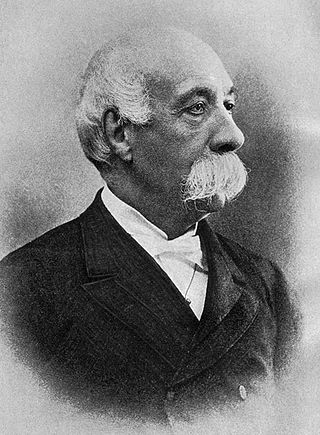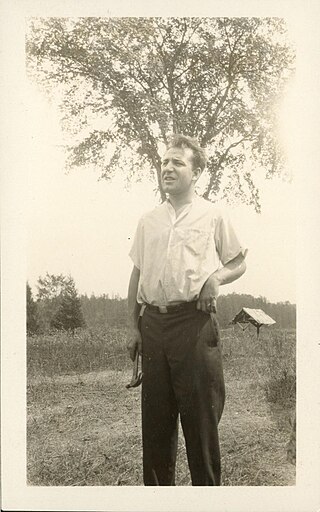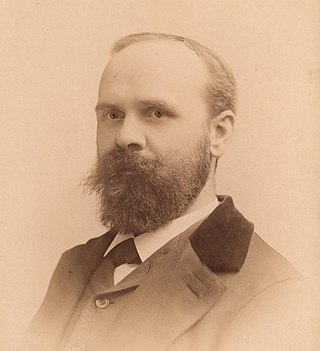Individualist anarchism is the branch of anarchism that emphasizes the individual and their will over external determinants such as groups, society, traditions, and ideological systems. Although usually contrasted with social anarchism, both individualist and social anarchism have influenced each other. Mutualism, an economic theory sometimes considered a synthesis of communism and property, has been considered individualist anarchism and other times part of social anarchism. Many anarcho-communists regard themselves as radical individualists, seeing anarcho-communism as the best social system for the realization of individual freedom. Some anarcho-capitalists claim anarcho-capitalism is part of the individualist anarchist tradition, while others disagree and claim individualist anarchism is only part of the socialist movement and part of the libertarian socialist tradition. Economically, while European individualist anarchists are pluralists who advocate anarchism without adjectives and synthesis anarchism, ranging from anarcho-communist to mutualist economic types, most American individualist anarchists of the 19th century advocated mutualism, a libertarian socialist form of market socialism, or a free-market socialist form of classical economics. Individualist anarchists are opposed to property that violates the entitlement theory of justice, that is, gives privilege due to unjust acquisition or exchange, and thus is exploitative, seeking to "destroy the tyranny of capital,—that is, of property" by mutual credit.
Propaganda of the deed is specific political direct action meant to be exemplary to others and serve as a catalyst for revolution.

Francesco Crispi was an Italian patriot and statesman. He was among the main protagonists of the Risorgimento, a close friend and supporter of Giuseppe Mazzini and Giuseppe Garibaldi, and one of the architects of Italian unification in 1860. Crispi served as Prime Minister of Italy for six years, from 1887 to 1891, and again from 1893 to 1896, and was the first prime minister from Southern Italy. Crispi was internationally famous and often mentioned along with world statesmen such as Otto von Bismarck, William Ewart Gladstone, and Lord Salisbury.
Anarchists have employed certain symbols for their cause, including most prominently the circle-A and the black flag. Anarchist cultural symbols have been prevalent in popular culture since around the turn of the 21st century, concurrent with the anti-globalization movement. The punk subculture has also had a close association with anarchist symbolism.
According to different scholars, the history of anarchism either goes back to ancient and prehistoric ideologies and social structures, or begins in the 19th century as a formal movement. As scholars and anarchist philosophers have held a range of views on what anarchism means, it is difficult to outline its history unambiguously. Some feel anarchism is a distinct, well-defined movement stemming from 19th-century class conflict, while others identify anarchist traits long before the earliest civilisations existed.
Anarchists have traditionally been skeptical of or vehemently opposed to organized religion. Nevertheless, some anarchists have provided religious interpretations and approaches to anarchism, including the idea that the glorification of the state is a form of sinful idolatry.
Anarchism in the United States began in the mid-19th century and started to grow in influence as it entered the American labor movements, growing an anarcho-communist current as well as gaining notoriety for violent propaganda of the deed and campaigning for diverse social reforms in the early 20th century. By around the start of the 20th century, the heyday of individualist anarchism had passed and anarcho-communism and other social anarchist currents emerged as the dominant anarchist tendency.

Laurance Labadie was an American individualist anarchist and author. Jo Labadie was his father.
Individualist anarchism in the United States was strongly influenced by Benjamin Tucker, Josiah Warren, Ralph Waldo Emerson, Lysander Spooner, Pierre-Joseph Proudhon, Max Stirner, Herbert Spencer and Henry David Thoreau. Other important individualist anarchists in the United States were Stephen Pearl Andrews, William Batchelder Greene, Ezra Heywood, M. E. Lazarus, John Beverley Robinson, James L. Walker, Joseph Labadie, Steven Byington and Laurance Labadie.
Anarchism in Russia developed out of the populist and nihilist movements' dissatisfaction with the government reforms of the time.
Italian anarchism as a movement began primarily from the influence of Mikhail Bakunin, Giuseppe Fanelli, and Errico Malatesta. Rooted in collectivist anarchism and social or socialist anarchism, it expanded to include illegalist individualist anarchism, mutualism, anarcho-syndicalism, and especially anarcho-communism. In fact, anarcho-communism first fully formed into its modern strain within the Italian section of the First International. Italian anarchism and Italian anarchists participated in the biennio rosso and survived Italian Fascism, with Italian anarchists significantly contributing to the Italian Resistance Movement. Platformism and insurrectionary anarchism were particularly common in Italian anarchism and continue to influence the movement today. The synthesist Italian Anarchist Federation appeared after the war, and autonomismo and operaismo especially influenced Italian anarchism in the second half of the 20th century.
Egoist anarchism or anarcho-egoism, often shortened as simply egoism, is a school of anarchist thought that originated in the philosophy of Max Stirner, a 19th-century philosopher whose "name appears with familiar regularity in historically orientated surveys of anarchist thought as one of the earliest and best known exponents of individualist anarchism". Egoist anarchism places the individual at the forefront, crafting ethical standards and actions based on this premise. It advocates personal liberation and rejects subordination, emphasizing the absolute priority of self-interest.
Individualist anarchism in Europe proceeded from the roots laid by William Godwin and soon expanded and diversified through Europe, incorporating influences from individualist anarchism in the United States. Individualist anarchism is a tradition of thought within the anarchist movement that emphasize the individual and his or her will over external determinants such as groups, society, traditions, and ideological systems. While most American individualist anarchists advocate mutualism, a libertarian socialist form of market socialism, or a free-market socialist form of classical economics, European individualist anarchists are pluralists who advocate anarchism without adjectives and synthesis anarchism, ranging from anarcho-communist to mutualist economic types.

Umberto I was King of Italy from 9 January 1878 until his assassination in 1900. His reign saw Italy's expansion into the Horn of Africa, as well as the creation of the Triple Alliance among Italy, Germany and Austria-Hungary.
General elections were held in Italy on 26 May 1895, with a second round of voting on 2 June. The "ministerial" left-wing bloc remained the largest in Parliament, winning 334 of the 508 seats.
Events from the year 1894 in Italy.

The Lunigiana revolt took place in January 1894, in the stone and marble quarries of Massa and Carrara in the Lunigiana, the northernmost tip of Tuscany (Italy), in support of the Fasci Siciliani uprising on Sicily. After a state of siege had been proclaimed by the Crispi government, armed bands dispersed into the mountains pursued by troops. Hundreds of insurgents were arrested and tried by military tribunals.

Benjamin Ricketson Tucker was an American individualist anarchist. Tucker was the editor and publisher of the American individualist anarchist periodical Liberty (1881–1908). Tucker described his form of anarchism as "consistent Manchesterism" and stated that "the Anarchists are simply unterrified Jeffersonian Democrats."
Anarchism in French Guiana has a short, and little recorded, history. The only continental territory in Latin America to remain under European control into the 21st century, Guiana has not seen the same political developments as most countries in the region. Still, anarchism has existed to some degree, mainly through the presence of political prisoners deported to the colony. In the modern era, anarchism has had a minor presence in the Guianan political milieu.
Joseph Ishill was a Romanian-born Jewish anarchist typesetter and bookbinder who worked with The Modern School. A commercial typesetter for most of his life, Ishill is most well known for his work with The Oriole Press, which he and his wife, Rose Florence Freeman founded in 1926.





